Trump v Biden II: an American showdown
Joe Biden and Donald Trump are rear-vision symbols of a fractured America, exposing the failures of its politics when the depth of the US crisis should have thrown up new, dynamic, generational change leaders.
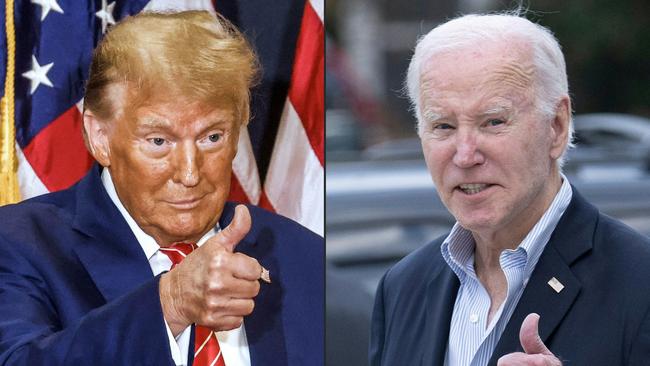
The great American showdown has begun – it will be destructive, dangerous and hopefully, at some point, uplifting. This is a struggle for the soul and the household budgets of the American people. It is the repeat event: another Joe Biden v Donald Trump contest for the American presidency.
Trump has scored a remarkable result: he has clinched nomination a third time as the Republican candidate with his primary victories being some of the most impressive in decades.
Yet the main event of the week was Biden’s State of the Union address when a feisty, assertive and probing Biden assailed Trump as an agent of “resentment, revenge and retribution”. This was a campaigning speech where Biden mocked the complaints about his age. Invoking Abraham Lincoln, Biden said not since the civil war “have freedom and democracy been under assault here at home as they are today”. By building the historic stakes in this election, Biden declared that Trump was a dangerous choice for America and the world.
Biden laid three charges against Trump. He accused Trump of selling out US leadership and Ukraine by “outrageous” and “unacceptable” comments signalling he would “bow down” to Vladimir Putin of Russia. “We will not walk away,” Biden said. “We will not bow down.”
Biden said Americans must “speak the truth and bury the lies” about the January 6 invasion of the Capitol, saying – in a lethal reference to Trump – “you can’t love your country only when you win”.
And with the Supreme Court bench in the front row, Biden assailed the court and Trump over the Roe v Wade repeal, saying he wanted the abortion laws restored. He said of Trump: “He’s the reason it was overturned. In fact, he brags about it.” Biden expressed his faith in the “power of women in America” seeking this reversal.
America faces a bitter, alienating contest between two flawed candidates. Neither can be expected to heal the nation’s schisms. Each candidate is extraordinarily vulnerable and that vulnerability creates hubris in the other. There is an unpredictability about what happens between now and the November presidential election.
On display is a paradox. Biden and Trump command the overwhelming support of their parties in the primaries yet, in truth, neither should have their party nomination.
Biden and Trump are unpopular incumbents, ageing, compromised and, each in his unique way, a weak and risky choice. They are rear-vision symbols of a fractured America, exposing the failures of its politics when the depth of the US crisis should have thrown up new, dynamic, generational change leaders.
The sad reality is that Biden is unconvincing and Trump is dangerous. Most Americans don’t want the Biden-Trump contest. Biden is 81 and will be 82 by inauguration if re-elected – there are obvious doubts about whether he is capable of another four-year term, yet his current Vice-President, Kamala Harris, is widely seen as an unacceptable successor. While Biden has displayed cognitive problems it seems only his wife, Jill, could persuade him to stand down. After Thursday night’s fighting manifesto, that won’t be happening.
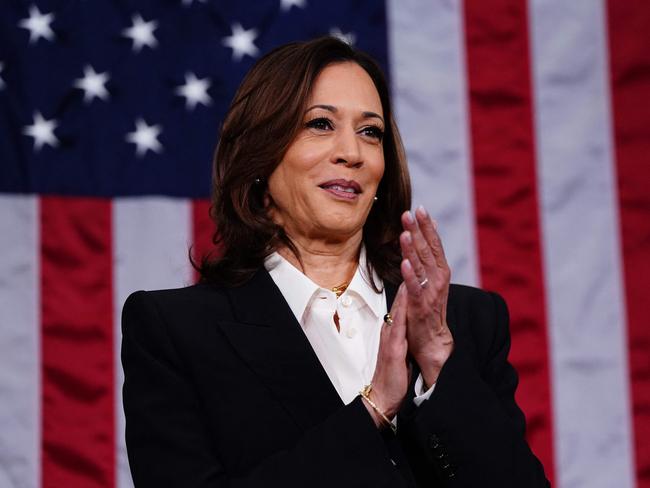
For Trump, 77, the ageing factor exists but is less of a problem. Trump’s surge through the Republican primaries on Super Tuesday, however, cannot conceal the multitude of problems he faces – if convicted of a felony then polls show Trump would lose the presidency; if Trump makes the campaign about himself and his narcissistic personal vendettas he will lose; the further risk for Trump is that his reckless pronouncements will steer independent and centrist voters against another Trump experiment.
Biden’s attack this week was far more potent than Trump’s victory remarks after his Super Tuesday wins. It reminds of the sheer baggage that Trump carries to be resurrected against him.
There is an even bigger issue – after 2020 the quality of American democracy is on trial. With liberal democracy in poor health worldwide, it is imperative America shows it can resolve profound conflicts within its constitutional framework. The risk is that a defeated Trump will recycle another falsehood: that Biden has not been legitimately re-elected or, even worse, that a victorious Trump will tamper with the core rules of US democracy.
Rarely in American history have the primaries been so removed from the voting public. As Republican strategist and George W. Bush adviser Karl Rove said, these weren’t contests, they were coronations. And they were unworthy coronations.
“Both Messrs Trump and Biden aren’t only weak contenders but massively flawed, old and declining, despised by much of America,” Rove said. “In my lifetime there have been lower points in our nation’s politics, but it is hard to recall them just now.”
This election has profound consequences for a world sinking into geo-strategic crisis. Rarely has the White House so needed a wise and resolute incumbent. The fear is that Biden, despite his largely measured foreign policy, will be too tottery while the greater fear is that an isolationist-inclined Trump will undermine America’s alliances, abandon Ukraine, weaken faith in democracy and encourage adventurism by autocratic rulers.
While the die is cast, the harsh historical judgment cannot be ignored. A wiser Biden should have decided months ago he would retire as a one-term president, a hero who had denied Trump in 2020, thereby securing a prized place in history. If Trump wins in November, Biden will be blamed. The Democratic Party victory in defeating Trump in 2020, assumed to finish him as a presidential force, will be reversed amid ruin. And Democrats will ruminate on how they allowed this to happen.
A wiser and courageous Republican Party should have pivoted away from Trump, denied his dominance of the once great GOP, recognised his unforgivable violation of US democracy in seeking to overthrow the people’s vote in 2020 and broken from its hostage-like subservience to Trump’s isolationist, protectionist, truth bending and vengeance-loaded persona.
Yet Trump’s dominance remains an astonishing risk for the Republicans. They are betting on Trump for a third time, devoid of willpower to do anything else. But Trump’s documented problem is that he underperforms in the vote.
The Wall Street Journal highlighted the fact that after Trump’s 2016 presidential win, every time voters have gone to the polls the Republicans have lost or underperformed: 2018, 2020, 2021 in Georgia Senate races and 2022.
The Washington Post pointed out that Trump was the first president since the Depression to lose the House of Representatives, the Senate and the presidency in a single term. The primaries show Trump’s weakness – in suburban areas in the swing states.
Rove warned that work was still needed to unite the Republican Party, pointing out that Trump’s rival, Nikki Haley, won between 23 per cent and 42 per cent in seven states. “Her performance made clear that a quarter to a third of Republicans are wary of Mr Trump,” Rove said. Polls show many Haley voters say they won’t vote for Trump in November – yet he needs that vote. Trump needs Haley, whom he mocks as “birdbrain”: how does that play?
Trump’s dilemma as the guaranteed Republican candidate is whether to talk America up or down. Do Americans see Trump as the solution or merely integral to their problems?
After winning nearly every state primary so far, Trump said: “Our cities are choking to death. Our states are dying. And frankly, our country is dying, and we’re going to make American great again – greater than ever before.”
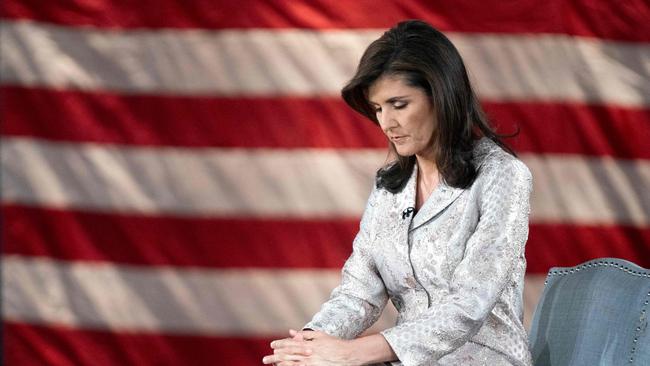
He said it was “sad to see” what had happened to America, “how far it’s come and gone” as he pledged to close the borders and deport a lot of people.
Moving to the border crisis that could, conceivably, deliver him the White House, Trump said: “We have millions of people invading our country. This is an invasion. This is the worst invasion probably. The number today could be 15 million people. And there’re coming from rough places and dangerous places.”
Here was the “carnage” from Trump’s first inaugural all over again. Trump’s messages these days are far more catastrophe than hope. And after eight years banging the same theme, how persuasive is Trump beyond his faithful? He campaigns as an incumbent. He doesn’t talk about America’s future, his message is that you will get my presidency again – that’s what the election is about, a Trump presidency re-run. And that’s not strong enough – it relies on Biden’s surrender. Of course, there were the usual Trump fantasies: if Trump had been president then Russia would not have invaded Ukraine and the Middle East War would not have occurred and Iran would be broke.
The reality, however, is that Biden’s weakness made it easy for Trump. The weaker Biden gets, the more favourable voters look on Trump’s 2016-20 presidency. Biden, in turn, is taking a huge gamble, driven by a mix of hubris and responsibility. He wants to defeat Trump a second time: he feels a sense of obligation.
This was apparent from his State of the Union address. That speech proved Biden knows he must do better. The question is whether he can maintain that performance in media appearances in the weeks and months ahead.
But Biden has got more fight in him than many people imagined and he knows something else – that Trump, exposed with the nomination, is a big and vulnerable target.
Biden has three critical problems – his age, the economy and border security. But they fuse into an overarching and dual defect: Biden’s lack of authority as President and his failure to establish an emotional rapport with the American people outside party loyalists.
A wide range of polls in recent days show Biden trailing Trump head-to-head by a narrow two to five percentage points. The latest Wall Street Journal poll shows Trump leading Biden 47-45 per cent while a New York Times/Siena College poll had Trump ahead by four percentage points.
The Wall Street Journal poll had 73 per cent saying Biden was too old to recontest while The Times/Siena College poll had 45 per cent saying Biden’s age was such that he was “not capable” of handling the job of president.
Biden challenged the age issue in his speech. “The issue facing our nation isn’t how old we are, it’s how old our ideas are,” Biden said. “Hate, anger, revenge, retribution are among the oldest of ideas. But you can’t lead America with ancient ideas that only take us back.”
Momentum is narrowly with Trump with evidence the Biden coalition is fragmenting. Biden has a problem with two critical constituencies – blacks and Hispanics. The most recent Times/Siena poll showed black support for Trump at 23 per cent while in 2020 Biden won the black vote by an estimated 92-8 per cent. The same poll has Trump leading Biden on the Hispanic vote 46-40 per cent, a reversal of Biden’s victory on Hispanics in 2020. The main reasons are the economy and personal economic wellbeing.
The presidential election may be decided by voter perceptions of the economy and this is compounded by a contradiction – economic results are strong but political support for Biden on the economy is weak.
There is a contradiction Australia knows well – between the economic indicators and the “lived experience” of people. Biden has run the ultimate experiment in 21st-century progressive left-wing economics. He has championed a big-spending, fiscal stimulus, government interventionist industrial policy aligned with a renewables-based clean energy strategy, a decisive departure from the free market, globalisation era of the past two generations.

At the same time the US central bank has been waging its interest rate campaign to curb high inflation, now reduced to 3.1 per cent. Economic growth is buoyant, the sharemarket is booming, unemployment is at 3.7 per cent, a half-century low, and the Federal Reserve interest rate is 5.25 per cent to 5.5 per cent.
Biden said his policies had attracted $650bn of private sector investments in clear energy and advanced manufacturing.
Selling the economic dividend, he said: “The American people are beginning to feel it.” But are they? The evidence contradicts this. A Wall Street Journal poll found more than two-thirds of voters said inflation was going in the wrong direction when it had fallen. Significantly, nearly three-quarters said inflation was running ahead of income increases and only one-quarter saw an improvement in the ability of the average person to get ahead.
Last month the Financial Times/Michigan Ross School of Business survey found 42 per cent of Americans felt Trump would be the better economic manager compared with 31 per cent for Biden, a trend, unless reversed, that could lose the election for Biden. The survey showed Trump had support from lower-income Americans who felt their economic situation had deteriorated while college graduates were twice as likely to have a positive view of the economy.
In his speech Biden worked to inject that “feeling” into the American people with pledges about prescription drugs, housing, social security, women’s health and childcare. Yet his administration underestimated the longevity of the damage caused by high inflation. Biden said when elected he aimed to unite America. But this has not been his mission – he has run a transformational economic agenda, weakened Trump’s border policies and pushed a progressive agenda on race, identity politics, sex and gender. Biden has not run as a centrist president, though his advisers insist this has been his intent. He has run as a Democrat sensitive to the progressive character of his party.
The upshot has been to open the door again to Trump.
On his first day as President Biden moved to weaken border policy. He has tried to play both sides of the issue – being compassionate and being strong. It doesn’t work. With people now surging across the southern border, Biden has done a backflip and promoted a law with tough border enforcement (along with more aid for Ukraine and Israel), only to see Trump engage in outrageous sabotage of the proposal.
Biden’s problem is that he moved too late and now finds that border security as an electoral issue rivals the economy in importance. In a sign of panic Biden, at one point, said he would shut down the border “the day I sign the bill”.
The “shut down” pledge is pure Trumpian rhetoric; it was not repeated in the State of the Union address. Polls show about two-thirds of Americans disapprove of how Biden is handling the border. The issue now is largely about Biden’s border failures, not Trump’s policy.
However, the wider strategic folly of Biden and the Democratic Party has been to underestimate Trump. They believed Trump would never recover from the infamy of his support for the January 6 Capitol invasion and that the criminal changes brought against him would make a viable candidacy untenable. Yet Trump is a political escape artist. He turns what appears a lethal setback into a bonus.
This is a dangerous year for America. The demise of trust between its warring cultures – represented by Biden and Trump – raises scepticism over whether the election will repair any of the damage. Will the election see the end of Trump leaving the Republican Party a shambles, having gambled big and lost? Will a Trump victory – likely to be tight if it happens – send the country into greater, even more dangerous division, putting the system under deeper strain?
The campaign is loaded with risk. This is not just a contest for the White House. Trump seeks to change the direction of the country to make America “great again” while Biden declares the contest is also about American democracy, its constitutional values and its leadership role in the world. Having raised the stakes so high, both men will push their campaigns to the point of desperation.
But in a bizarre way they reinforce one another. Biden, having beaten Trump once, seems convinced he is the Democrat best able to repeat the effort. Yet the Republicans, seeing a faltering Biden, have doubled down on Trump’s manic thirst for vengeance and surrendered, yet again, the heart and soul of their party.
Where this ends defies prediction. Let’s hope it is the least of the worst scenarios.




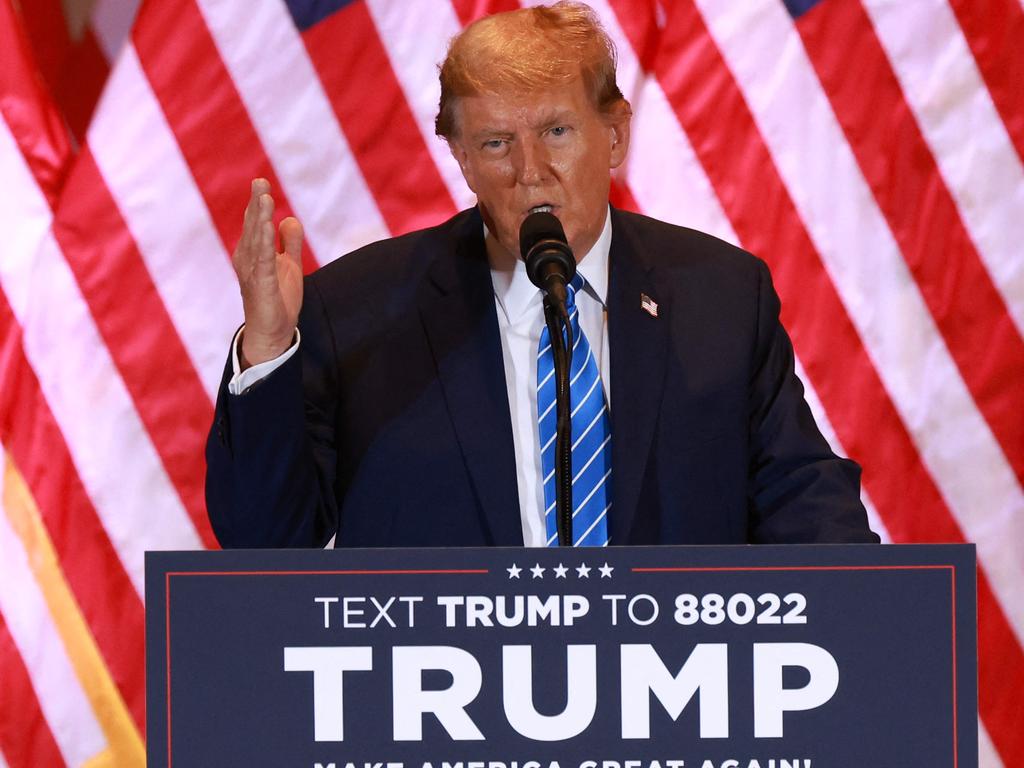
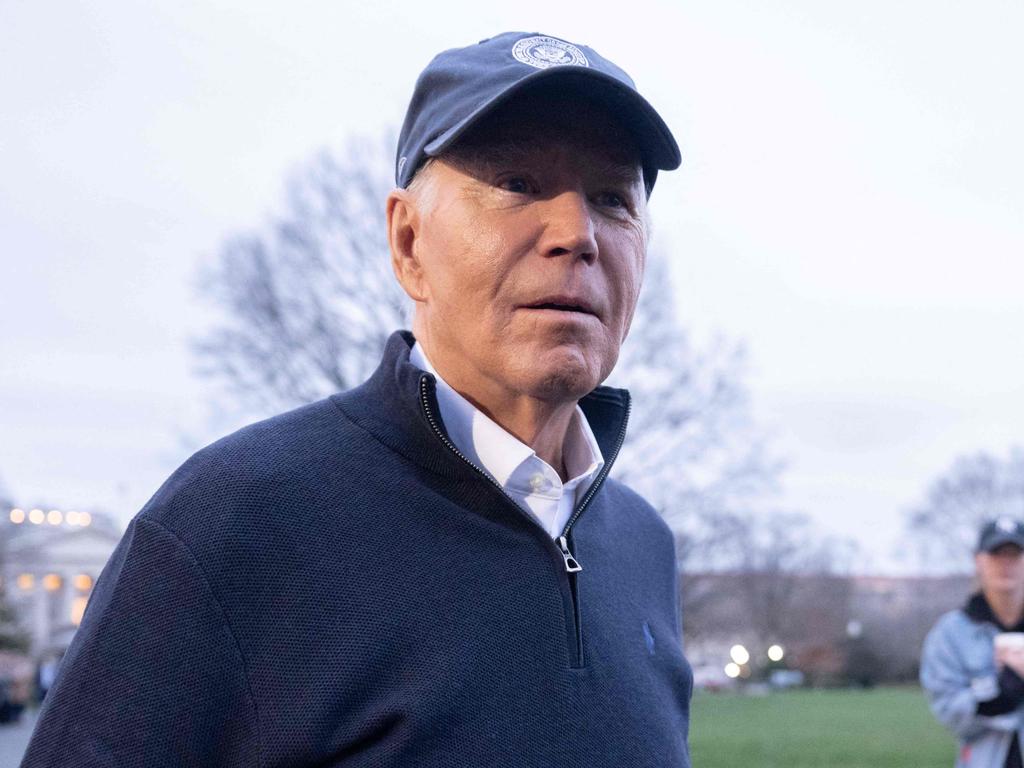


To join the conversation, please log in. Don't have an account? Register
Join the conversation, you are commenting as Logout